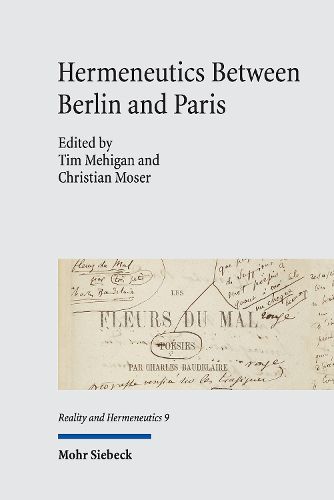Readings Newsletter
Become a Readings Member to make your shopping experience even easier.
Sign in or sign up for free!
You’re not far away from qualifying for FREE standard shipping within Australia
You’ve qualified for FREE standard shipping within Australia
The cart is loading…






This volume presents a series of forays into the domain of recent hermeneutic reflection in search of an ethics for our time which, as the rupture of (post-Kantian) Berlin and (poststructuralist) Paris hermeneutics implies, cannot be reliably located in the province of either. The contributors put in the spotlight not only the problem of the disjuncture in hermeneutics between a philosophically and a linguistically informed project of understanding; they also introduce new positions that have the potential to reorient the search for ethics in a post-religious era. The most promising of these new positions seek to move beyond the terms of both Berlin and Paris hermeneutics, configuring the process of world-making in art and literature as a limited undertaking where the ethical 'tertium comparationis' is never truly available. The volume therefore supposes that the literature of our time develops its own variety of ethics - and, indeed, of hermeneutics - which does its work in areas not directly available to philosophy or political theory.
$9.00 standard shipping within Australia
FREE standard shipping within Australia for orders over $100.00
Express & International shipping calculated at checkout
This volume presents a series of forays into the domain of recent hermeneutic reflection in search of an ethics for our time which, as the rupture of (post-Kantian) Berlin and (poststructuralist) Paris hermeneutics implies, cannot be reliably located in the province of either. The contributors put in the spotlight not only the problem of the disjuncture in hermeneutics between a philosophically and a linguistically informed project of understanding; they also introduce new positions that have the potential to reorient the search for ethics in a post-religious era. The most promising of these new positions seek to move beyond the terms of both Berlin and Paris hermeneutics, configuring the process of world-making in art and literature as a limited undertaking where the ethical 'tertium comparationis' is never truly available. The volume therefore supposes that the literature of our time develops its own variety of ethics - and, indeed, of hermeneutics - which does its work in areas not directly available to philosophy or political theory.